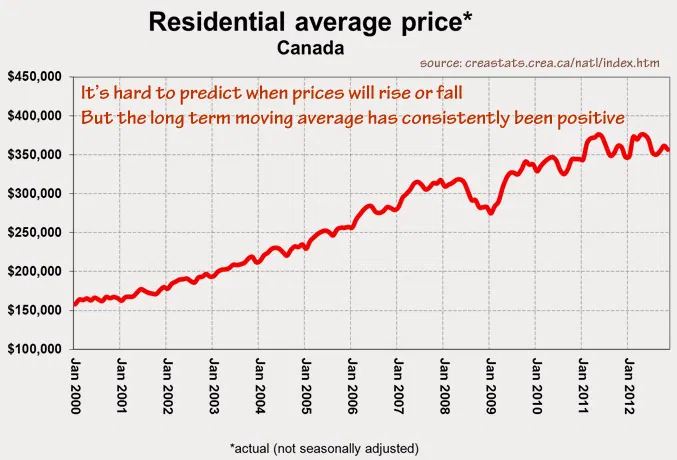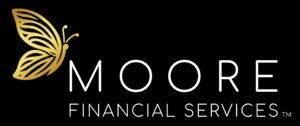
Passive investment in real estate is the flip side of the coin, offering many advantages of its own. Property or mortgage assets are selected by professional real estate investment managers, who spent full time investing, analyzing and managing real property. Often, these professionals can negotiate lower prices than you would be able to on your own. Additionally, when a number of individual investor’s money is pooled, the passive investor is able to own a share of property much larger, safer, more profitable, and of a better investment class than the active investor operating with much less capital. Most real estate is purchased with a mortgage note for a large part of the purchase price. While the use of leverage has many advantages, the individual investor would most likely have to personally guarantee the note, putting his other assets at risk. As a passive investor, the limited partner or owner of shares in a Real Estate Investment Trust would have no liability exposure over the amount of original investment. The direct, active investor would likely be unable to diversify his portfolio of properties.
A lot of money has been made by those who invest in real estate. If you are a new investor thinking about jumping in then this article is for you–a straightforward three-step plan meant to help you get started investing. Foremost; you must decide that you will make a commitment to invest in real estate. Yes, real estate can and does provide financial success for the average person, but it’s not all fun and games-getting started investing in property takes work. You must be willing to make an effort to learn the nuances over a several month period with a good attitude about learning and the resolve not to quit until you succeed. A wealth of information is available for you on real estate investing. There are books, seminars, and now, thanks to the web, a ton of online resources. The cost will be minimal, and in many cases, many resources are free. So your education isn’t going to cost you an arm and a leg but to be successful you need to invest the time and money to learn. Start by learning the basics.
This balance suggests a liquidity of the multifamily apartment building market based on the simple principles of supply and demand. When purchasing a property, there are always transaction costs involved. The burden of purchasing and apartment building is greatly reduced compared to purchasing the same number of single family units. It is a great saving of time, energy and expense. There are other factors involved that will affect the efficient use of your time as an investor in multifamily property. 1. Concentration of units and focusing on specific areas will assist with the maintenance and upkeep of your investment in this apartment buildings. 2. If you eventually own enough property that you require a property manager, imagine the time saved maintaining a building of 12 units rather than 12 single family units. 3. Record-keeping tax purposes will be much easier for a multifamily apartment building as opposed to the same number of single family units. 4. When it comes to selling these properties, there are the obvious advantages and disadvantages and I will look at these in another article. Briefly looking at the above comments, I believe the advantages of owning a multifamily property definitely outweighs the advantages of owning single family property. Without going into it, the limiting factors are always the availability of capital resources. Assuming that these resources are favorable, it is a far more efficient use of your time to look at investing in apartment buildings in fulfilling every investors goal of accumulating long-term wealth.
Becoming a real estate investor is not as difficult as you think even though you don’t have the capital and experience. Sound too good to be true, right? There are many ways of getting started in real estate investing. One of the easier and getting popular way is to become a real estate bird dog and get started learning real estate investment from seasoned investors. You should consider real estate bird dogging as the first step of your investing career if you are serious to become a real estate investor. Why? Because real estate investment requires you to have the knowledge and experience in addition to sufficient capital. As a real estate bird dog, you get the opportunity to expose yourself to real estate investment without buying properties. It is basically a risk free method of real estate investing. Depending on how much effort you are willing to put in, a bird dog can easily make few hundred to thousand dollars a month by finding profitable deals for the investors. Besides, you can start your bird dogging in your spare time, mainly during your weekend without having to give up your day job. And you get the opportunity to sharpen your personal attributes especially communication skills during the process. If you intend to be a part time real estate investor while holding a day job, please be reminded that there is no quick buck in real estate investment. It is crucial that you treat your real estate investing as a business as it may take months if not years for your business to bring in significant cash flows before you can quit your 9 to 5 job. So, it does pay for you to become a full time real estate investor.
What is the first rule of real estate investing. Most real estate experts tell you “Leverage – Using Other People’s Money”. Most real estate investors want 100% financing for a hand full of houses they intend to purchase or they request that the owner finance the property. The strategy is to buy and hold a handful of rental properties for a few years until the equity in the property has increased. Then they either refinance all the properties or sell all the properties of take all the equity out and then retire rich with millions of dollars in equity or a healthy cash flow to sustain the lifestyle. Within a thirty year period of time real estate market will have at least five downturns. The value of property in some areas can hit the bottom just as you decide to retire. The real estate investor of today does not want to wait thirty years to cash in and live the life.
Kohn told his audience that the current downturn may actually be good for the economy as a whole, because it represents a chance for America’s supply and demand system to rebalance in areas that have seen dramatic increases over the past few years, allowing buyers who may have been priced out of their desired neighborhoods to begin looking for homes again. There are other factors that may also spur a fairly quick market recovery, including the number of new households being formed and an increasing population. Kohn believes that the inevitable turnaround should begin relatively soon. Statistics from the National Association of Realtors (NAR) also would seem to back up Kohn’s optimism. Kohn’s same optimism is also supported by the fact that long-term mortgage rates are only about a percentage point above historic lows. The recent decline in both gas prices and the country’s unemployment rate both indicate that Americans are better positioned to make their house payments. To further debunk the doom-and-gloom predictions of a housing swoon, the Fed has stopped raising interest rates, as well, which indicates that they are comfortable with the situation. So the next time you turn on your television and hear about the catastrophic condition of America’s housing market, remember that you can’t believe everything you hear. The actual figures simply don’t support what the media is reporting.
